- Details
- Category: Senator Meg Loughran Cappel News

SPRINGFIELD – To incentivize educational professionals, State Senator Meg Loughran Cappel passed a measure through the Senate Education Committee that would increase the annual pay cap for teachers who mentor or provide professional development for classroom teachers or counselors.
“As a former special education teacher, I understand the struggles many education professionals are facing,” said Loughran Cappel (D-Shorewood). “It’s important for new teachers to have qualified mentors to lean on, especially when first joining the profession. This can lead to increased satisfaction for teachers and education professionals.”
House Bill 1291 would increase the annual pay cap from $1,500 to $2,250 for teachers with National Board for Professional Teaching Standards designations who mentor or provide professional development for classroom teachers or counselors.
- Details
- Category: Senator Robert Peters News
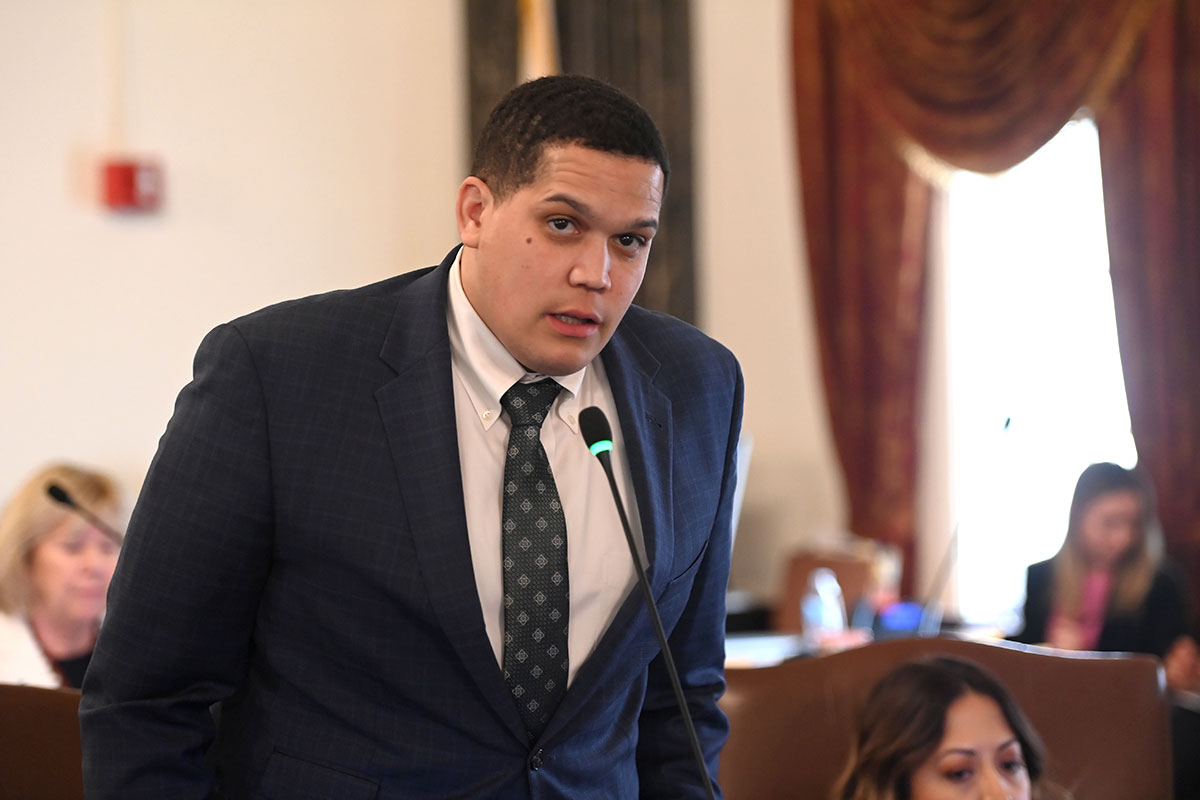 SPRINGFIELD – A measure increasing the baseline financial penalty for civil rights violations sponsored by State Senator Robert Peters passed the Senate Judiciary Committee on Tuesday.
SPRINGFIELD – A measure increasing the baseline financial penalty for civil rights violations sponsored by State Senator Robert Peters passed the Senate Judiciary Committee on Tuesday.
“Discrimination has unfortunately been on the rise,” said Peters (D-Chicago). “Victims of civil rights violations don’t ask to be discriminated against and deserve every bit of compensation they can get.”
House Bill 2248 would allow state claims for violations of federal civil rights acts to be heard in any court with jurisdiction. The measure also provides that Illinois courts may award no less than $4,000 in damages.
Read more: Peters advances plan to create the Civil Rights Remedies Restoration Act
- Details
- Category: Majority Report
EMT recruitment legislation sponsored by Halpin, Anderson passes Senate
SPRINGFIELD – State Senator Mike Halpin passed a measure through the Senate aimed at creating incentives to recruit much-needed emergency medical technicians in Illinois fire departments.
“Now that we’ve gotten this passed, we need to ensure the money is appropriated in this year’s budget,” said Halpin (D-Rock Island). “I look forward to working with Senator Anderson to get it done.”
Johnson: We are a step closer to implementing changes that will protect the future safety of residents
SPRINGFIELD – State Senator Adriane Johnson advanced a measure to expand training on lights and sirens for ambulance drivers going through red lights during emergencies.
“Today we are one step closer to implementing changes that will protect the future safety of residents.” said Johnson (D-Buffalo Grove). “I look forward to working with first responders and people in our community to enhance training for ambulance drivers.”
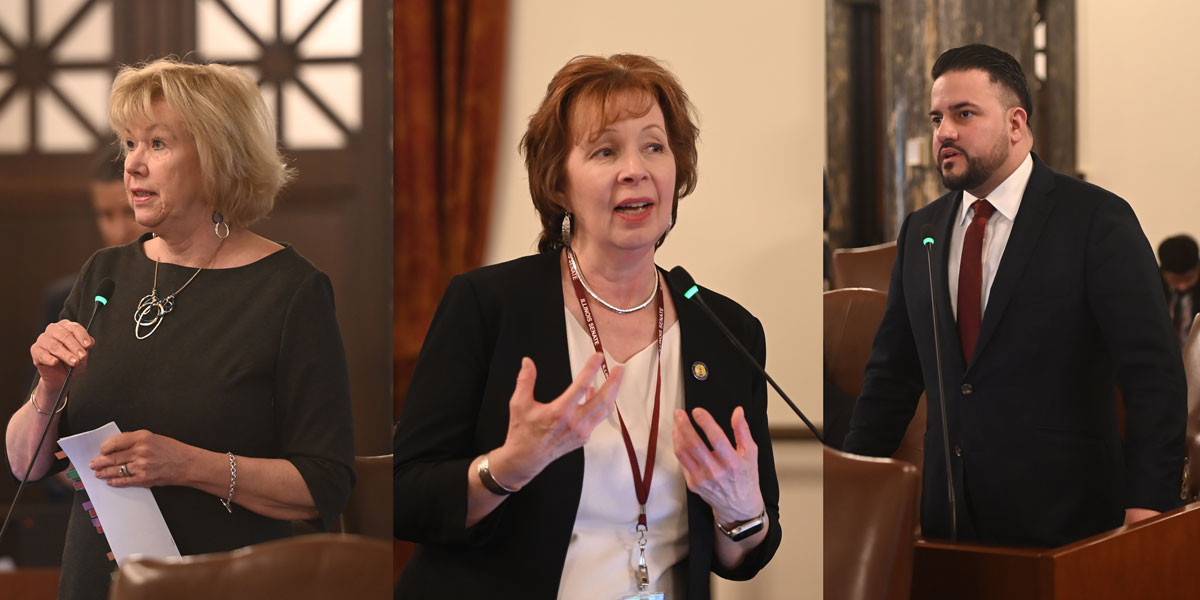 $14 million in capital grants coming to nonprofit human services providers, thanks to Illinois Senate Democrats
$14 million in capital grants coming to nonprofit human services providers, thanks to Illinois Senate Democrats
CHICAGO – State Senators Julie Morrison, Ann Gillespie and Omar Aquino joined the Department of Human Services and the Department of Commerce and Economic Opportunity on Friday to announce awards totaling $14 million in Rebuild Illinois funding that will provide critical safety and accessibility improvements to 70 social service providers across 24 counties.
Awarded under the first-ever competitive Human Services Capital Investment Grant Program, the funds will help nonprofit human services providers address physical construction and accessibility needs. The program was designed to prioritize disproportionately impacted areas, the expansion of human services and to address fire prevention and mitigation needs, such as the installation of fire sprinkler systems.
Preston and Consulate General of Israel host tour of Green Book Exhibit
SKOKIE – State Senator Willie Preston and the Consulate General of Israel to the Midwest teamed up to co-host a tour of the Green Book exhibit currently on display at the Illinois Holocaust Museum.
The Green Book exhibit tells the story of the Green Book, a guidebook that Black Americans used during the Jim Crow era to navigate safe spaces in the South. The exhibit explores the history of the Green Book and its importance as a tool for Black Americans to protect themselves from discrimination and violence.

In case you missed it
MEMBERS IN THE NEWS
State Senators Sara Feigenholtz and Robert Peters, Chicago: Illinois announces $22.5 million in new tourism grants | Our Quad Cities
Senator Meg Loughran Cappel, Shorewood: State bill calls for review of teacher licensing standards | Crain's Chicago Business
Senator Doris Turner, Springfield: Senator Turner pushing bus safety | Taylorville Daily News
Copyright 2023 - Illinois Senate Democratic Caucus - All Rights Reserved
- Details
- Category: Senator Meg Loughran Cappel News
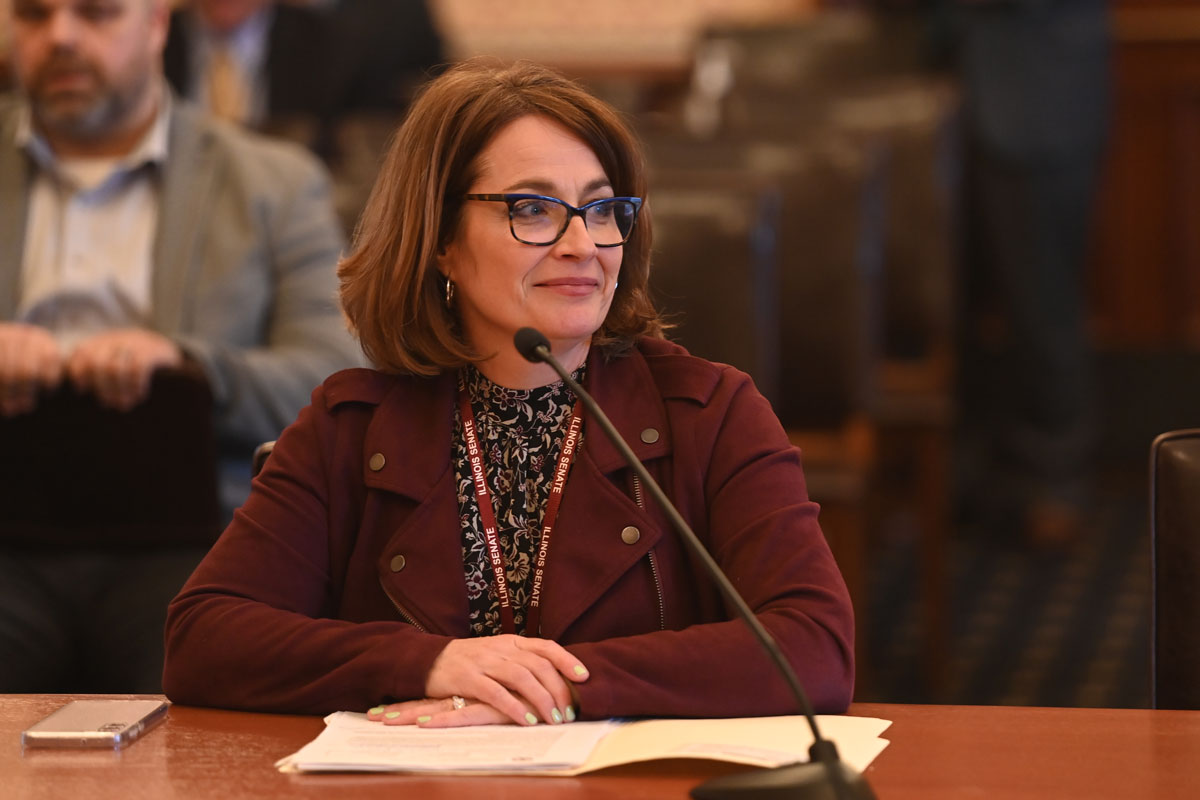 CREST HILL – With strong support from State Senator Meg Loughran Cappel, Stepping Stones Treatment Center is set to receive $240,000 to help address physical construction and accessibility needs.
CREST HILL – With strong support from State Senator Meg Loughran Cappel, Stepping Stones Treatment Center is set to receive $240,000 to help address physical construction and accessibility needs.
“Stepping Stones plays an important role in our community by providing treatment services for those in need,” said Loughran Cappel (D-Shorewood). “This strong investment allows the center to grow and continue making a positive impact on residents in Joliet and across Will County.”
A total of $14 million was awarded to 70 human services providers across the state through the Human Services Capital Investment Grant program. The program was designed to prioritize disproportionately impacted areas, the expansion of human services, and to address fire prevention and mitigation.
Stepping Stones in Joliet professionally treats addiction, anxiety, depression and dual diagnosis. The $240,000 grant will be used to expand treatment service physical capacity by 34 people and meet all ADA and safety compliance standards to ensure a safe, healthy environment for staff and clients. With the funding, the center will add beds and a kitchen for the two extended care units, replace its outdated HVAC system and degraded exterior siding and windows, update its electrical system to meet safety compliance requirements, and remodel two bathrooms.
Click here for a full list of Human Services Capital Investment Grant program recipients.
- Details
- Category: Senator Adriane Johnson News
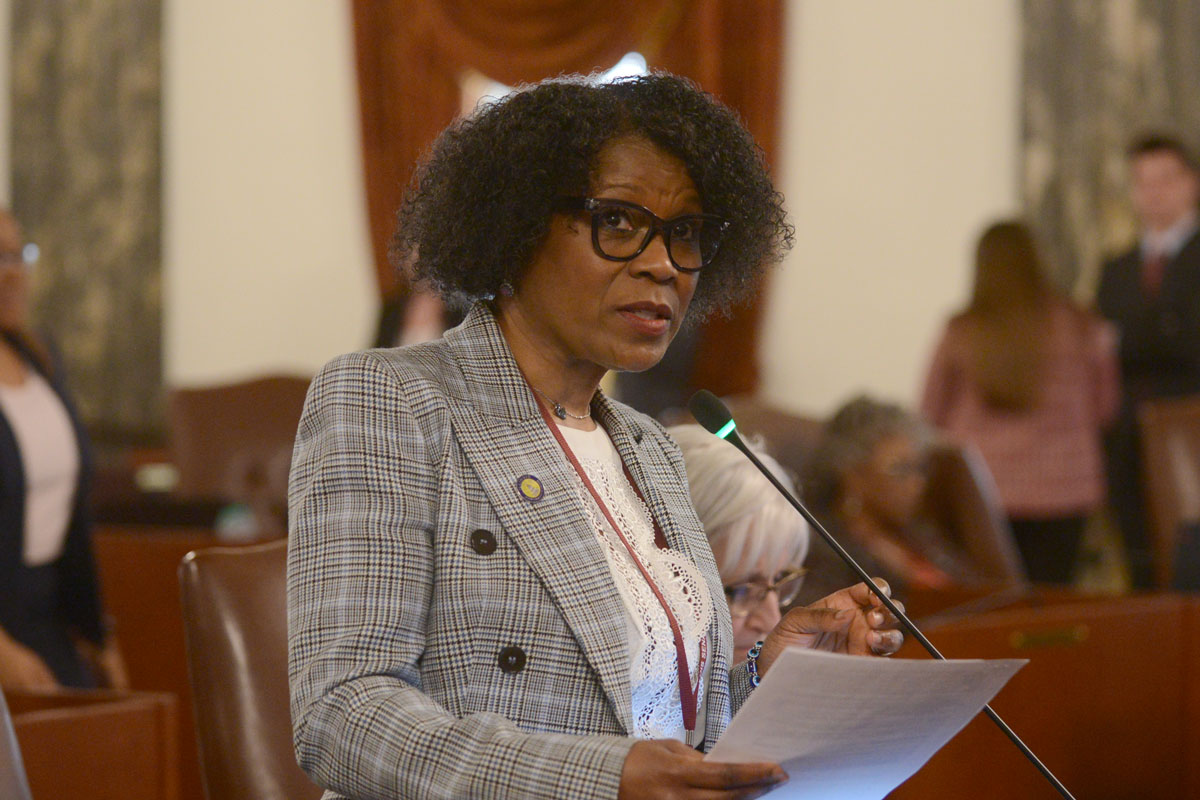 WAUKEGAN – State Senator Adriane Johnson celebrates another win for community health initiatives with a $500,000 investment in an asthma mobile unit designed for Waukegan and North Chicago.
WAUKEGAN – State Senator Adriane Johnson celebrates another win for community health initiatives with a $500,000 investment in an asthma mobile unit designed for Waukegan and North Chicago.
“Each step we take for the betterment of our community is a step in the right direction,” said Johnson (D-Buffalo Grove). “It is my hope that together, we can provide the resources necessary for a healthier community.”
The Christopher Redding Youth Asthma Foundation, founded in 2013, is managing the asthma van as they share a vision in serving the community with Senator Johnson. The Asthma Mobile Unit will provide asthma and allergy medicine to Lake County, concentrating on Waukegan and North Chicago. They will service families and youth living with asthma, with an emphasis on lessening the potentially adverse health effects on asthmatic youth and young adults involved in athletics in underserved communities.
- Details
- Category: Member News
 CHICAGO – State Senators Julie Morrison, Omar Aquino and Ann Gillespie joined the Department of Human Services and the Department of Commerce and Economic Opportunity on Friday to announce awards totaling $14 million in Rebuild Illinois funding that will provide critical safety and accessibility improvements to 70 social service providers across 24 counties.
CHICAGO – State Senators Julie Morrison, Omar Aquino and Ann Gillespie joined the Department of Human Services and the Department of Commerce and Economic Opportunity on Friday to announce awards totaling $14 million in Rebuild Illinois funding that will provide critical safety and accessibility improvements to 70 social service providers across 24 counties.
Awarded under the first-ever competitive Human Services Capital Investment Grant Program, the funds will help nonprofit human services providers address physical construction and accessibility needs. The program was designed to prioritize disproportionately impacted areas, the expansion of human services and to address fire prevention and mitigation needs, such as the installation of fire sprinkler systems.
- Details
- Category: Senator Willie Preston News

SKOKIE - State Senator Willie Preston and the Consulate General of Israel to the Midwest teamed up to co-host a tour of the Green Book exhibit currently on display at the Illinois Holocaust Museum.
The Green Book exhibit tells the story of the Green Book, a guidebook that Black Americans used during the Jim Crow era to navigate safe spaces in the South. The exhibit explores the history of the Green Book and its importance as a tool for Black Americans to protect themselves from discrimination and violence.
State Senator Willie Preston was proud to co-host the event and hopes that it will bring attention to the important role that the Green Book played in American history.
Read more: Senator Preston and Consulate General of Israel host tour of Green Book Exhibit
- Details
- Category: Senator Ann Gillespie News
 ARLINGTON HEIGHTS — Students enrolled in District 214’s Culinary Arts ProStart Career Pathway rose to the challenge as they baked sweet and savory breads during State Senator Ann Gillespie’s second annual Great District 214 Culinary Competition Bake-Off on Thursday.
ARLINGTON HEIGHTS — Students enrolled in District 214’s Culinary Arts ProStart Career Pathway rose to the challenge as they baked sweet and savory breads during State Senator Ann Gillespie’s second annual Great District 214 Culinary Competition Bake-Off on Thursday.
“I am so impressed with the talent and creativity students displayed this year,” said Gillespie (D-Arlington Heights). “Congratulations to our winners; I know you will be successful as you continue your culinary journey.”
Teams from Buffalo Grove, Elk Grove and Rolling Meadows high schools competed in savory and sweet categories. The winning dishes, both from Elk Grove High School teams, were jalapeño popper monkey bread from Alejandro Pons Jurado and Jonathan Alvarado in the savory category, and caramel macchiato cream cheese muffins from Samantha Rowan and Adam Chamala in the sweet category. The students will each receive scholarship funds to attend Harper College.
Dishes were evaluated by a panel of judges that included Gillespie; Grace Goudie, executive chef at Scratchboard Kitchen; Heather Henkel, manager/confectioner at Kilwin’s; Charlie Brown, executive chef at The Moorings; and Brian Baseggio, chef at The Makerplace, Arlington Heights Memorial Library.
The Bake-Off was held in Arlington Heights Memorial Library’s Makerplace facility in partnership with Township High School District 214, Harper College, Arlington Heights Memorial Library and the Arlington Heights Chamber of Commerce.
More Articles …
Page 210 of 762

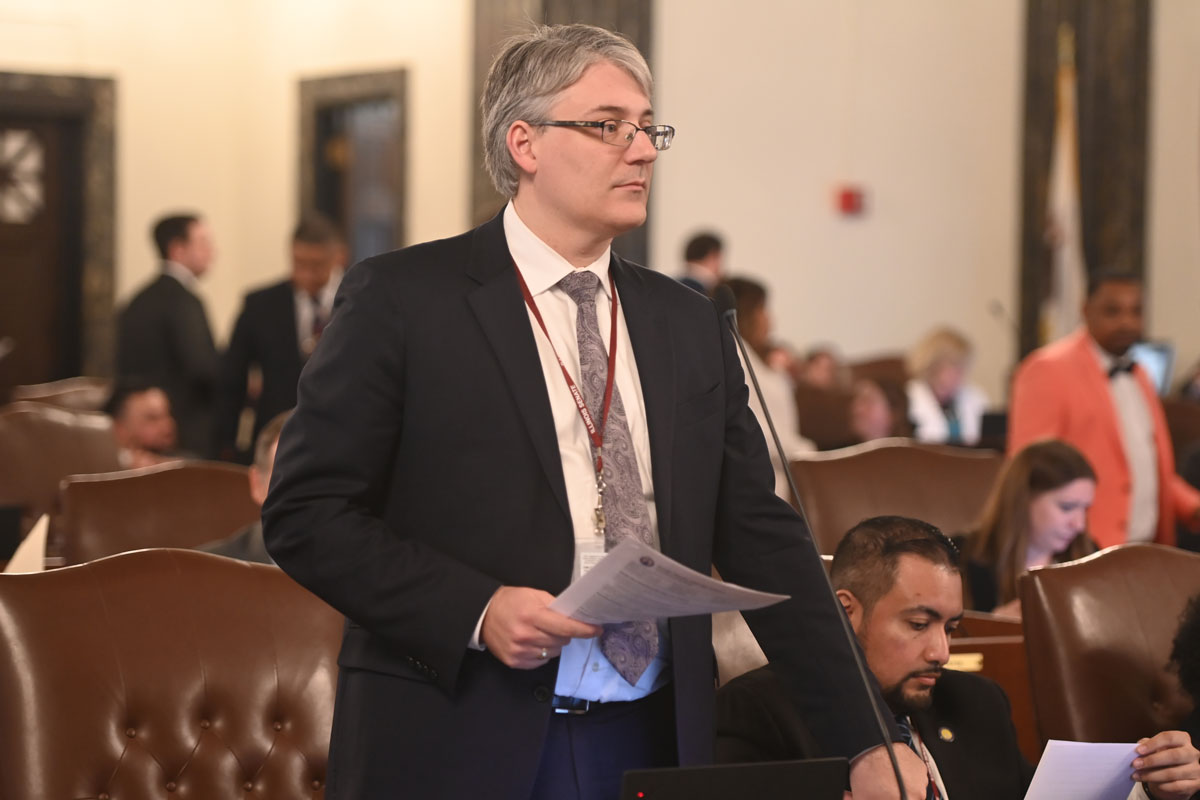













 © 2026 Illinois Senate Democratic Caucus
© 2026 Illinois Senate Democratic Caucus